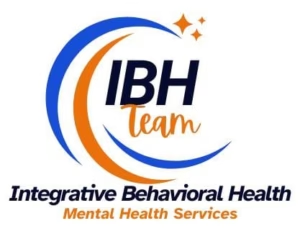Mental health is just as important as physical health, yet many people hesitate to seek professional help when they’re struggling. Recognizing the signs that you may need support is a critical step in taking control of your well-being. If you’re unsure whether it’s time to consult a mental health professional, here are some key indicators to consider.
1. Persistent Feelings of Sadness or Hopelessness
It’s normal to feel down occasionally, but if sadness or hopelessness lingers for weeks or months and begins to interfere with your daily life, it may be a sign of depression. Professional help can provide tools and strategies to address these emotions effectively.

2. Intense Anxiety or Worry
While occasional stress is part of life, excessive worry or anxiety that disrupts your ability to concentrate, sleep, or perform daily tasks may indicate an anxiety disorder. A mental health professional can help you identify triggers and develop coping mechanisms.
3. Difficulty Coping with Loss or Trauma
Grief, whether from losing a loved one, experiencing a breakup, or undergoing a significant life change, can be overwhelming. If the pain feels unmanageable or lasts longer than expected, therapy can offer a safe space to process your emotions and heal.
4. Changes in Sleep or Appetite
Significant changes in your sleeping patterns (insomnia or oversleeping) or appetite (eating too much or too little) can signal underlying mental health issues such as anxiety, depression, or stress-related disorders.

5. Loss of Interest in Activities You Once Enjoyed
Losing interest in hobbies, socializing, or activities you used to love may indicate depression or burnout. A therapist can help you understand the root cause and work toward regaining your sense of joy.
6. Struggles with Relationships
Frequent conflicts, feelings of isolation, or difficulty communicating in personal or professional relationships may benefit from the insights of a mental health professional. Therapy can provide tools to navigate these challenges and improve connections.

7. Uncontrollable Anger or Irritability
If you find yourself frequently losing your temper or feeling irritable without a clear cause, it could be a sign of underlying stress, anxiety, or other mental health concerns. Therapy can help you manage these emotions constructively.
8. Use of Substances to Cope
Turning to alcohol, drugs, or other substances to numb emotional pain or cope with stress can indicate a deeper issue. Seeking professional help is essential for breaking this cycle and finding healthier ways to manage your feelings.
9. Physical Symptoms with No Clear Medical Cause
Chronic headaches, fatigue, stomach issues, or other unexplained physical symptoms can sometimes stem from mental health challenges. A professional can help you explore the mind-body connection and address the root causes.
10. Feeling Overwhelmed or Unable to Function
If you feel like you’re constantly on edge, struggling to keep up with daily responsibilities, or unable to function as you normally would, it’s time to seek help. Mental health professionals can provide strategies to regain balance and improve your quality of life.
11. Thoughts of Self-Harm or Suicide
If you are having thoughts of self-harm or suicide, seek help immediately. Contact a crisis hotline, such as the Suicide and Crisis Lifeline by dialing 988, or go to the nearest emergency room. You are not alone, and help is available.
Recognizing the need for professional help is a sign of strength, not weakness. Mental health professionals are trained to support you through life’s challenges and guide you toward a healthier, more fulfilling life. If you’re experiencing any of these signs, don’t hesitate to reach out for help. Your mental health matters, and you deserve the care and support you need.


